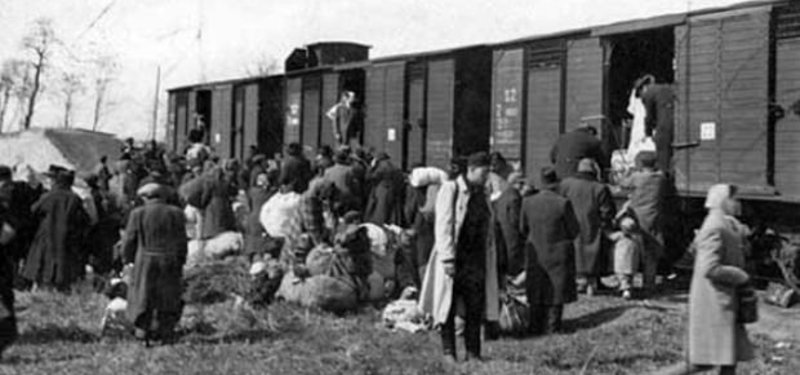
Ahiska Turks strive to erase painful memories of exile
- Türkiye
- Anadolu Agency
- Published Date: 07:38 | 15 November 2019
- Modified Date: 07:38 | 15 November 2019
Seventy-five years after their deportation from their homeland, the Ahiska Turks still strive to erase the painful memories of the past that still haunt them.
On Nov. 14, 1944, more than 92,000 Ahiska Turks -- including children, women and elders -- were deported from their ancestral lands in the Ahiska region of Georgia to remote areas of the then Soviet Union.
Scattered across nine countries with a total population of around 500,000, the Ahiska Turks are now hopeful for the future thanks to Turkey's efforts that bear fruit.
Ziyatdin Kassanov, head of World Union of Ahiska Turks, spoke to Anadolu Agency about the efforts were made to ensure the return of Ahiska Turks to their homeland.
Kassanov said the exile of Ahiska Turks started on Nov. 15, 1944 following orders of Josef Stalin, then-leader of Soviet Union, who sought to alter the Turkish union in their territories.
"That's because Ahiska was a corridor connecting the Turkic world," he said, adding it was an intentional strategy followed by the Soviet administration.
Kassanov went on to say that the deportation of 1944 just came out of blue as the Soviet soldiers told Ahiska Turks to be ready within hours with their luggage, then they were taken to train station for deportation.
"Soldiers loaded our people in vehicles and brought them to train stations. Then they were loaded on wagons that were used to carry livestock. The train journey continued for a month on wagons carrying animals and that too in winter," he lamented.
"At least 70 people […] were loaded on each wagon. The pregnant women gave births in the wagons in which they were not able to relieve even themselves," he said, adding many died due to hunger, cold and excruciating conditions of the travel.
Kassanov said the Ahiska Turks were in touch with the Council of Europe regarding their return to the homeland and Turkish Foreign Minister Mevlut Cavusoglu's initiative in this regard have played a significant role.
"Turkey was our homeland, our hope. Thank God, it looked after us," he said, adding their union was the only NGO within the Council of Europe and Cavusoglu greatly supported their cause after he had assumed the presidency of the Parliamentary Assembly of the Council of Europe (PACE).
He went on to say that Georgia was convinced on the return of Ahiska Turks with concrete support from Turkish President Recep Tayyip Erdogan. However, Georgia must pass a law enabling it to actualize their return.
Determined to end 75-year-old exile, up to 3,500 Ahiska Turks have recently returned to Georgia, according to Kassanov, who said dozens of them bought properties in the country and many students studied there with the assistance of Turkey's Presidency for Turks Abroad and Related Communities (YTB).
He offered special thanks to Erdogan for giving Ahiska Turks an opportunity to be Turkish citizens following decision made by Turkey's Council of Ministers in 2017.

